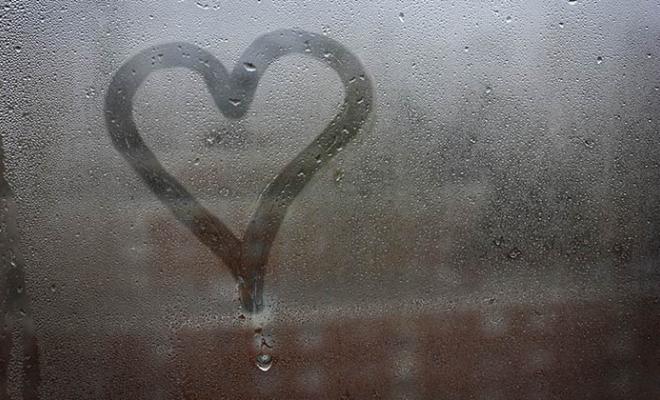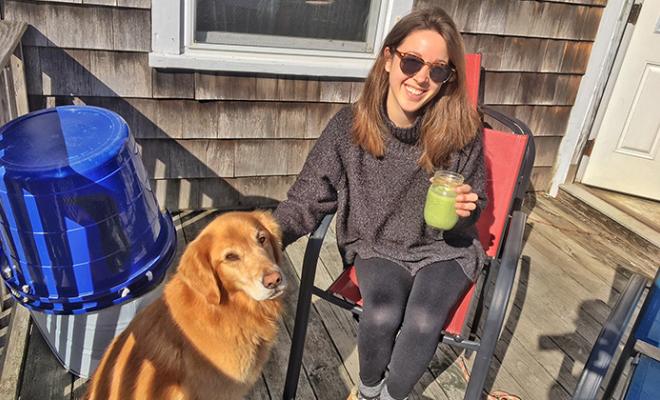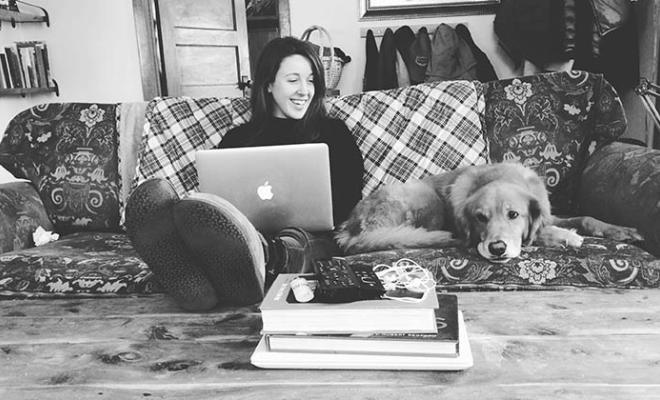I'm sentimental. If it'll make me cry, I'm interested. This is the case for books, TV, music and especially film. My friends have teased me for years about my mawkish tastes.
I spend many of my Saturday mornings at the movies. Though I'll see almost anything, whenever there's a weepy romantic drama in the theater you better believe I'm at the 10 a.m. showing with a backpack filled with tissues and snacks, alongside senior citizens and a few other misguided romantics. I can't resist a good cry, particularly the kind you get from the popular subgenre, a love story in which one of the characters is terminally ill.
In these movies, a healthy person meets a sick person, they fall in love and then the sick one dies. Before his or her death, the sick lover usually is portrayed as brave, bubbly and (ironically) full of life. They're the manic pixie sick girl, or boy. They serve to inspire the healthy partner (and the audience), who learns to approach each day like it's their last, to take risks, to " live boldly."
I know this type of movie is a hot-button topic for some folks. I respect that. I understand the repercussions popular culture can have on, well, culture. But I'm a movie fan, guys! I don't know if I have it in my heart to be angry at Hollywood for giving me The Fault in Our Stars. I go to the movies to escape for two air-conditioned hours and feel things. I don't care if an overemotional, underdeveloped script "manipulated" those feelings from me. Plus, without this genre, what would I do on Saturday mornings?
However, I am still surprised by how people talk about "the sick" in real life. My Facebook feed gives me the impression that we're living in a movie, in a world where all sick people are inspiring. And I like being inspired, too! Hearing about people with CF who are doing incredible things, like climbing Mount Everest (!), reminds me that this disease doesn't have to hold me back. But when we exclusively tell these types of stories IRL (in real life), do we ignore the complexities that come with chronic and life-threatening illness?
This includes the language people use to detail how we live with our illnesses. We beat cancer, we fight CF, we battle infections -- or we go down swinging. I'm not the first to question why we use military language to describe the terminally and chronically ill. I'm not offended. There are worse things than being called a "fighter."
But I don't often feel very brave.
When it comes to my disease, I swing between two modes. A lot of the time, I'm apathetic. I was born with CF. I'm used to it. And there's no real choice. I have to do my treatments, take my pills, visit the clinic or face a grim alternative. Once the CF maintenance is out of the way, I go on living my wild and crazy life, like going to the movies by myself on Saturday mornings.
Other days, I'm a mess. I cry. I kick things. I write melodramatic journal entries. My self-pity bleeds into anger, and this is when I'm loneliest. No one likes a bitter sick person. We want the inspirational one, the fighter. So for a long time I didn't talk about how angry I was because I didn't want to make anyone uncomfortable.
I get it. It's unsettling to be around someone when they're angry, especially if you can't fix what's upsetting them (like an incurable disease). I'm guilty of feeling this way, too. But the more I shut down the "bad" feelings, the worse they got.
So I started talking. To my boyfriend, to my parents, to my friends, to my CF care team. And it helped. I'm still angry sometimes, but I'm dealing with it.
I'm not advocating for a barrage of complaints from the CF community. But I do think a lot of good can come from breaking out of the inspirational role. By accepting the anger, depression and anxiety that often accompany this disease, I have been able to reconcile with what's happening to my body. I've stopped kicking and screaming and breaking things when I'm alone. Or at least, I've stopped feeling so guilty about all the kicking and screaming and breaking things.
And to those using "brave" to describe people living with disease: please don't misunderstand me! From my perspective, your support is more than welcome. Just maybe consider adding more adjectives to the narrative once in a while. One-dimensional sick folks, though great for a good cry at the movies, don't really exist in real life. At least I've yet to meet one.






